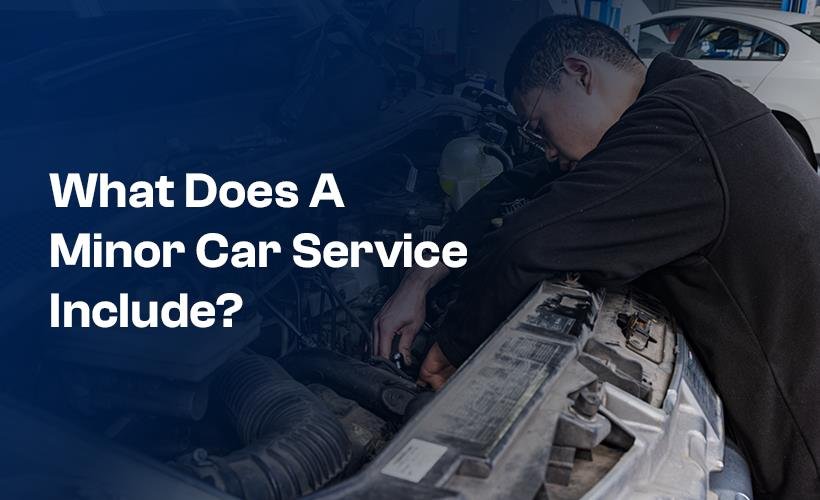A minor car service isn’t expensive but important for vehicle maintenance and safety. Regular services help catch issues early, which prevents costly repairs later.
Skipping minor services and only doing major ones doesn’t work. When your major service is due, your car may already have problems because you missed the minor ones.
Regularly scheduling your car for service at your local auto care centre, like the Renault service centre near you for your Renault vehicle, will help you understand why one of these routine check-ups are important. Let’s understand what’s included in a minor car service:
- Engine oil is drained and replaced with fresh oil to improve efficiency.
- The oil filter is swapped out to keep the engine running smoothly.
- All fluids like clutch, transmission, power steering, brake and coolant are flushed and renewed.
- A battery test ensures it holds a charge and won’t need replacing soon.
- A thorough safety inspection identifies any immediate or future repairs needed.
- A test drive ensures nothing vital is overlooked that could jeopardise safety.
- Air, fuel, and pollen filters are inspected for necessary replacement.
- Gearbox oil, transfer case, and differential oil levels are checked.
- Wiper blades are examined to ensure they’re in good condition and don’t need replacing.
As you can see, we have listed out what is done in a minor car service, which covers many checks to keep your car safe and reliable. It prevents unexpected issues that could become costly if ignored or left unrepaired for too long.
Table of Contents
Why is car servicing important?
Following the manufacturer’s manual or logbook ensures that essential checks are conducted on critical vehicle components, reducing the risk of breakdowns. After understanding the minor car service checklist, you now know what’s included or what is a minor car service.
Skipping annual servicing to save money is a short-term gain with potential long-term costs. Regular servicing detects issues early, preventing expensive repairs later on and improving fuel efficiency with new oil and air filters for smoother engine operation.
A consistent servicing history from a reputable workshop enhances resale value when you’re ready to sell your car. Simply put, regular servicing extends your vehicle’s lifespan and increases its market appeal, attracting more buyers willing to pay a higher price for a well-maintained vehicle with documented service records.
Difference between Minor and Major car services
The difference between major and minor car services depends on your vehicle’s make and model. Regularly scheduling minor services is necessary for maintaining vehicle safety and performance. While it may be inconvenient to service your car frequently, especially if you drive long distances, doing so can extend your engine’s lifespan, reduce fuel consumption, enhance vehicle safety, prevent wear on parts, maintain roadworthiness and increase resale value.
Here’s a brief different expert mechanics point out when it comes to minor and major car servicing:
- Minor Service: A minor service involves a thorough vehicle inspection, diagnostic checks, and basic maintenance tasks like changing engine oil and filters. A trained technician typically performs it and may be part of your logbook service, sometimes called a basic service. Depending on your vehicle, manufacturer guidelines, engine type, and usage, minor services are generally recommended every 10,000 kms. or annually.
- Major Service: A major service includes more extensive maintenance tasks such as replacing transmission and differential oils, which help lubricate crucial gears in your vehicle’s drivetrain. It also involves checking and replacing brake and clutch fluids, adjusting tappet clearance, and greasing wheel bearings. Depending on your vehicle, manufacturer recommendations, and engine type, major services are typically required after two minor services, approximately every three years or 30,000 kms. This is also the time when components like spark plugs, cabin and fuel filters, and timing belts may need replacement, as specified in your vehicle’s logbook.
How often should you get your car serviced?
How often you can service your car may sound to be confusing with varying recommendations from different manufacturers. Most modern cars now have onboard computers that signal when servicing is due based on specific conditions. Some dealers, especially for Renault cars, advocate for longer intervals between services, sometimes up to 20,000 kms.
Most car specialists recommend servicing Renault cars every 7,000 kms. or annually, whichever comes first. This schedule applies to both automatic and manual transmissions. These intervals allow regular inspection of critical components like the transmission, power steering, cooling system and differential.
Take Away
Now that you know what’s included in a car service in Australia, it’s time to take action.
Most vehicles today have complex diagnostic systems that constantly monitor for issues. Many have warning lights and messages that appear on the dashboard. However, staying alert to any signs of car problems is important. Watch for strange dashboard lights of your Renault car, unusual smells or sounds and other questionable symptoms that might not trigger a warning indicator.
Your manufacturer’s logbook is the best guide for determining the ideal timing for your vehicle’s minor and major service intervals. If you face issues with your Renault vehicle, get it inspected at a Renault service centre near you. Professional Renault mechanics will guide you with Renault services.










